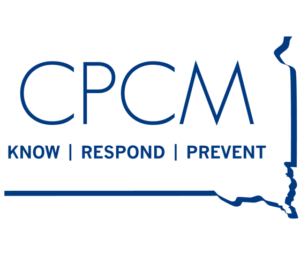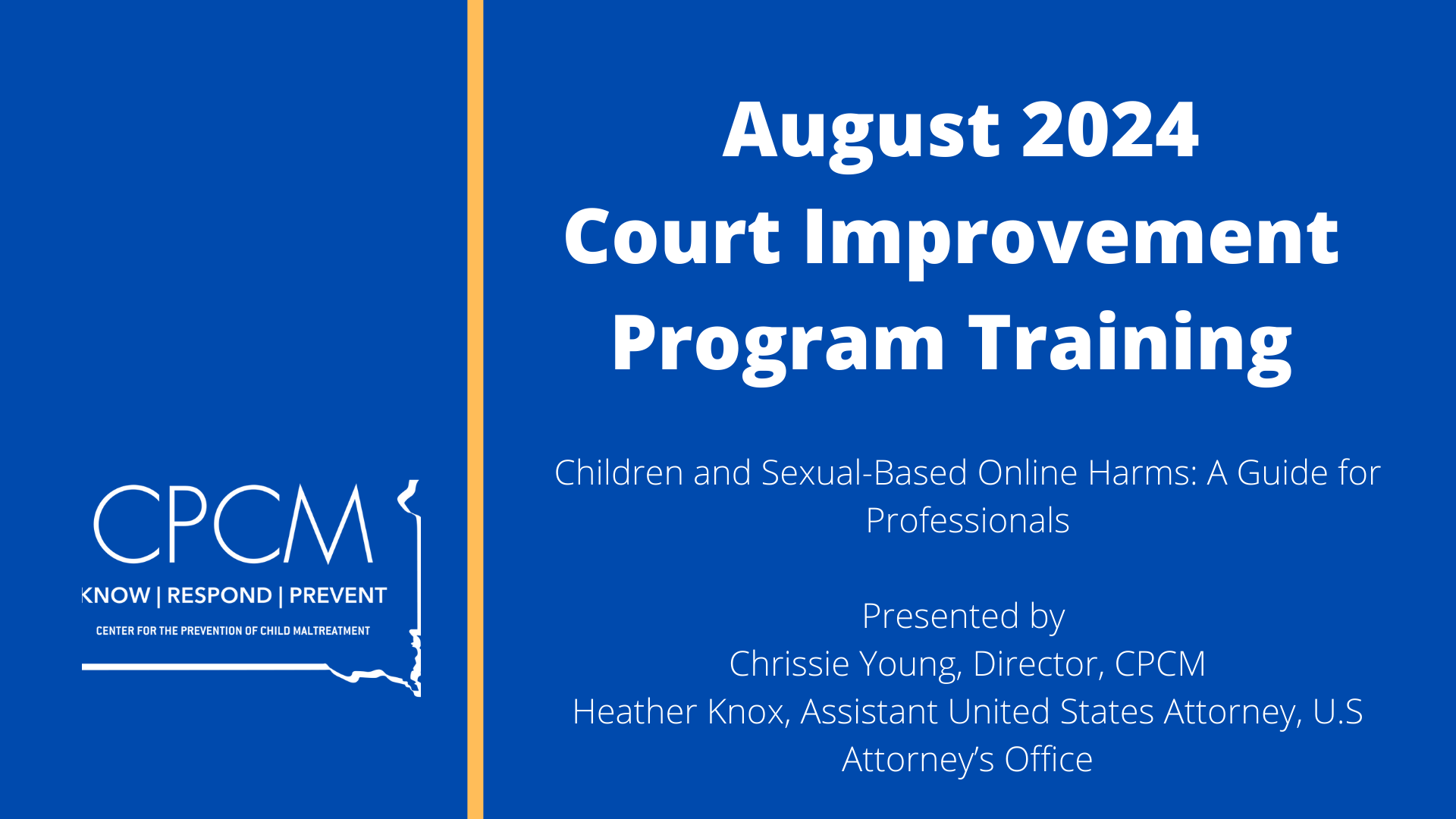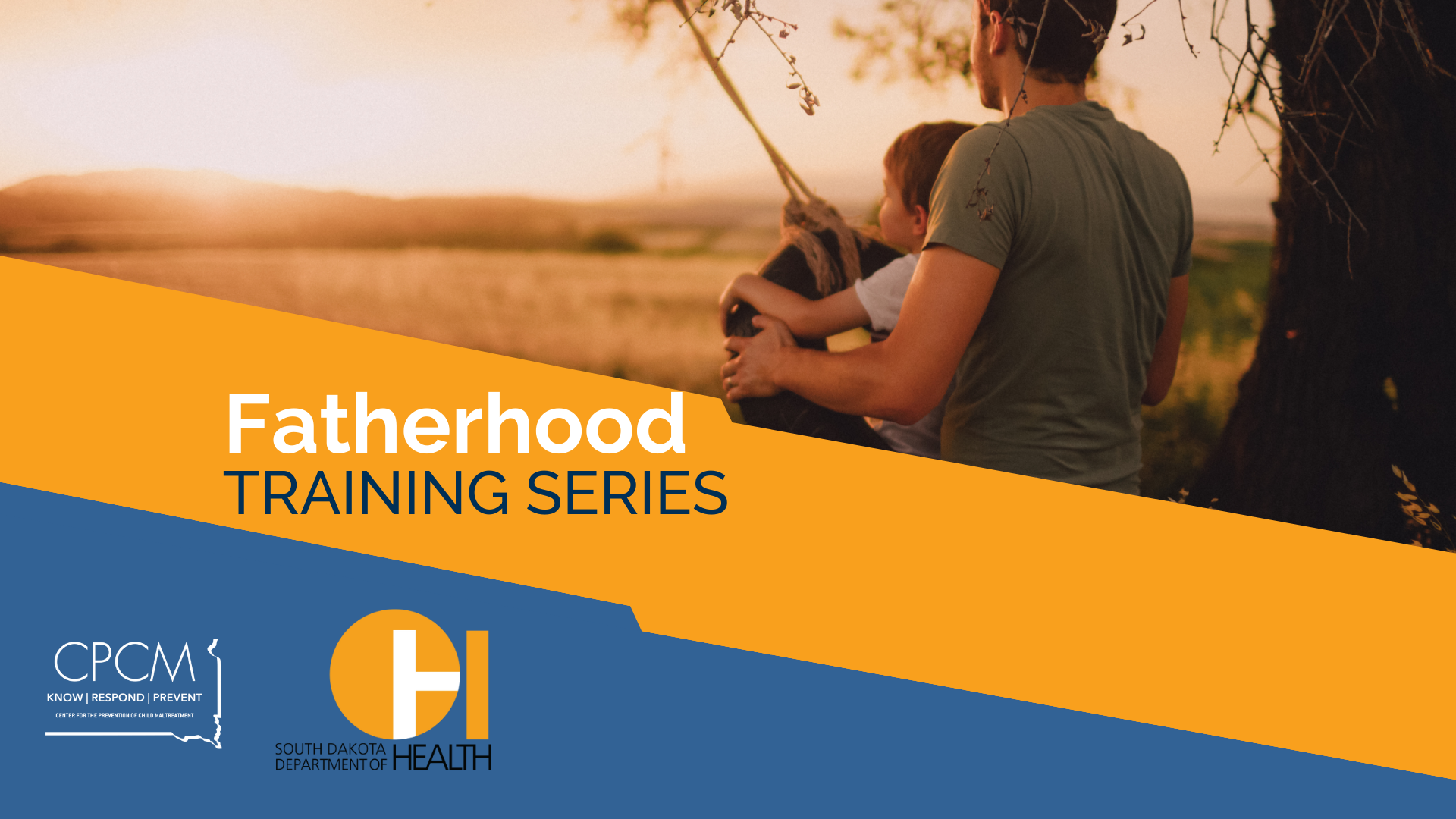Support the effort to end child maltreatment in April by:
- Wear Blue on April 4 and share an image on social media.
- Attend the ECCS or CIP monthly training session.
- Attend the Legal Workshop or Ray of Hope Event.
- Download and customize graphics and templates for social media and email.
- Refresh your knowledge with the Recognizing and Reporting Child Maltreatment online course.
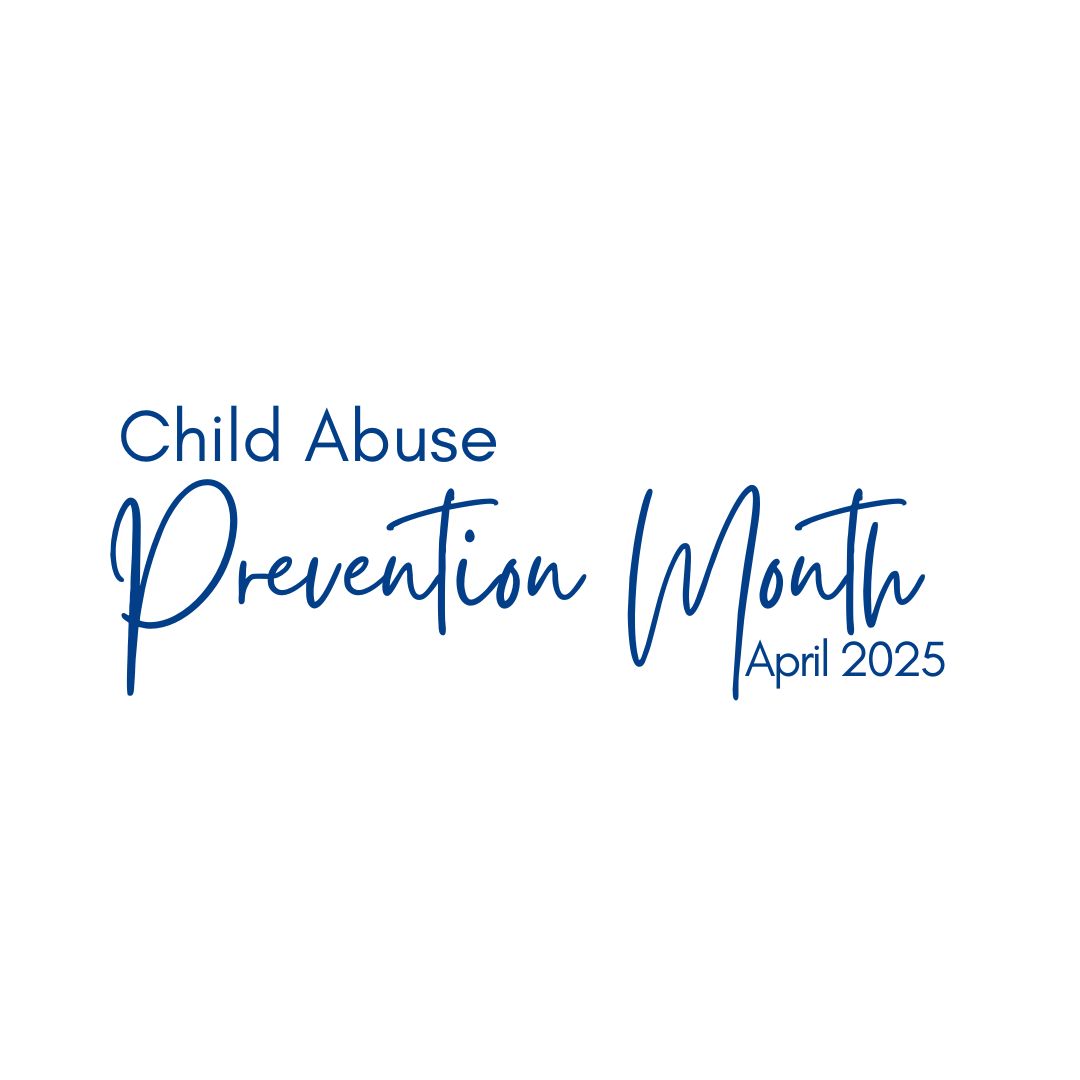
South Dakota Wear Blue Day to Prevent Child Abuse
Wear blue! Join us in sharing your support, by wearing blue on April 4 and sharing an image on social media.
Ray of Hope: Child Abuse Prevention Event
April 15: Ray of Hope event
Center for the Prevention of Child Maltreatment (CPCM) invites you to join us in commemorating this important month by raising awareness of how we can help our fellow South Dakotans know about, respond to, and prevent child maltreatment.
Legal Workshop
April 3: Legal Workshop
The 4th Annual Legal Workshop is sponsored by the South Dakota Unified Judicial System Court Improvement Program. CPCM and the University of South Dakota Knudson School of Law are partner organizations for this event. This is a free learning opportunity, to be held at the Muenster University Center in Vermillion.
Court Improvement Program Training
April 30: Understanding the Impact of Maltreatment on Child Development
Join us for our April session of the Court Improvement Program. Exploration of the impact of stressors experienced during infancy, childhood, adolescence, and young adulthood. Session participants will: understand the effect of stress on a child’s brain development; recognize and understand the physical and behavioral health effects of violence, neglect and abuse, including mental health impacts; and understand the impact of child maltreatment on suicide ideation, attempt, and completion.
Partner Event: Henry’s Run
To raise awareness and funds for child abuse prevention. All proceeds benefit Sanford Children’s Child’s Voice, a South Dakota Children’s Advocacy Center.
2025 Graphics and Templates:
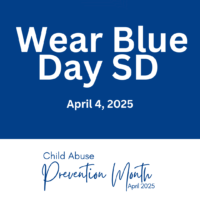
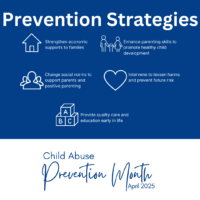
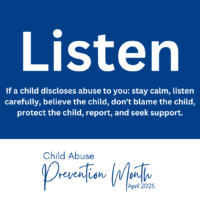
Download zip file of graphics and templates.
Social Media Follow and Share:
Facebook: https://www.facebook.com/SDCPCM
Instagram: https://www.instagram.com/sdcpcm/
South Dakota Resources:
https://dss.sd.gov/childprotection/nationalchildabuse.aspx
National Resources:
https://www.childwelfare.gov/topics/preventing/preventionmonth/
Spirit of ICWA
Examine the origins and the strong need for the Indian Child Welfare Act formally known as ICWA and the true spirit and nature. Presented by Dereck Stonefish, Training Coordinator, Native American Institute and CEO, Indigenous Forward Consulting.
Reporting Child Abuse and Neglect
This session will cover reporting suspected child abuse/neglect, screening of child abuse/neglect reports, present danger and impending danger, and initial family assessment safety model. Presented by JoLynn Bostrom, SD Department of Social Services, Division of Child Protection Services.
SANE Courtroom Training Series
Training sessions are available to view online.
Children and Sexual-Based Online Harms: A Guide for Professionals
This session will cover research around the risks and vulnerabilities of children accessing the internet, online grooming and exploitation, impacts of children viewing pornography online, what we can do as professionals, parents, and policymakers. Presented by Chrissie Young, Director, CPCM and Heather Knox, Assistant United States Attorney, U.S Attorney’s Office
eSANE Training Series: Victims’ Rights 101 for Medical Personnel
Overview of victims’ rights and why they matter to survivors and understand how advocates, medical personnel, law enforcement, attorneys and other allied professionals can help protect those rights. Trainers: Amy Liu and Rebecca Khalil, National Crime Victim Law Institute
Fatherhood Training Series
Training series on fatherhood. Topics include the impact of involved fathers, co-parenting techniques and strategies, father involvement in maternal and infant health, family resilience, diversity of fatherhood experiences across cultures, and impact of policies on father engagement. Presenters vary.
